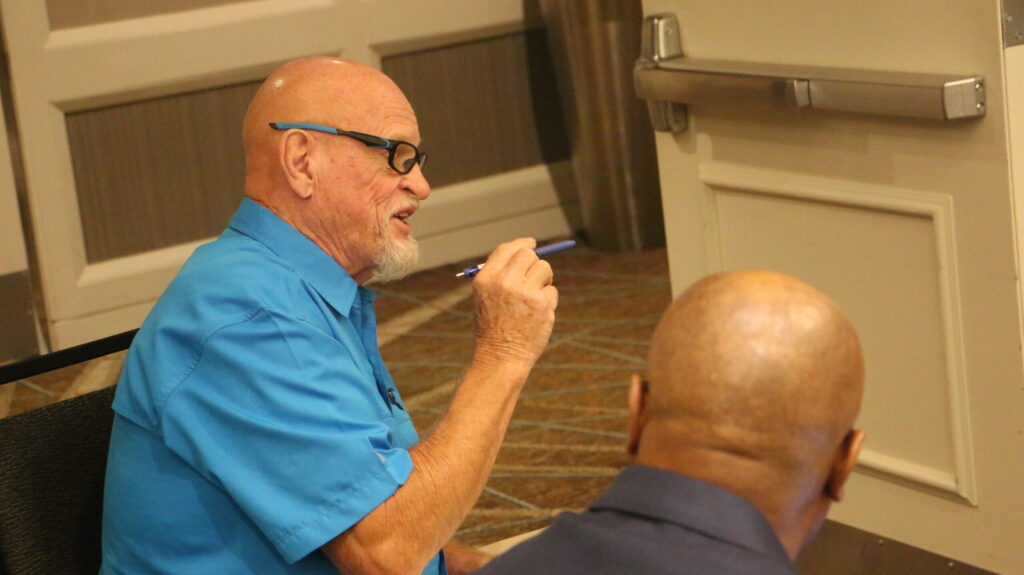Communication Tips During the COVID-19 Pandemic
In light of the COVID-19 pandemic, people are protecting themselves by washing their hands, social distancing, and wearing face masks. While the day to day can already be difficult if you are struggling with hearing loss, it can be even harder with all of these health precautions. Read more to discover some tips and tricks to make communicating a bit easier.
The CDC recommends that you wear a face mask if you can, but these can get in the way of communication. Masks cover the region between the nose and mouth to minimize the spread of the virus. They are used to protect both you and others because they significantly reduce the chances of the virus spreading.
According to a survey completed by the Hearing Health Foundation, 87% of their 625 respondents are experiencing difficulty communicating at this time.1 These face masks cover roughly half of your face, making it tricky for others to read non-verbal cues.2 To make matters more difficult, if you rely on lip-reading, face masks make it much more difficult to navigate daily conversations. Of those in the survey that said that they are experiencing difficulty communicating at this time, 85% said that the inability to read lips is a problem.1 Some face masks, like the N95, can even impact our sound level by making sounds quieter and more difficult to hear, and the frequencies of our speech are muffled making speech more difficult to understand.2
As you can see, while face masks protect our health, they also create a new communication barrier for those with hearing loss. You may be asking yourself “Okay, but what can I do to both follow CDC guidelines and communicate?”.
What can you do to help?
- “Communicator masks”
- Some people have been wearing “communicator masks”3, which are masks with a clear panel in the front. This not only protects you and others, but it also helps you to lip-read or allow others to read your lips.*People have been making these masks at home, and if you would like to make one for yourself or loved ones find the pattern here4 or another one here5.
- Capture the attention of communication recipient
- Do your best to face the person, gently get their attention, make eye contact, and use meaningful gestures. We forget the number of visual cues used in conversation.
- Speak slowly and enunciate
- As you normally would when communicating with someone with hearing loss, speaking slowly and enunciating will help to improve communication. Speaking louder is not the answer.
- Rephrase when asked to repeat
- It may help if you rephrase what you said when asked to repeat.2 Certain sounds are harder to catch or distinguish, so rephrasing what you said may help.
- Reduce or minimize background noise
- Talking in Costco at peak business hours may be difficult between the amount of people, machinery moving goods, general acoustics, and other surrounding noises. Try to separate yourselves from the noise to a quieter environment to make it easier to carry on your conversation. The same holds true for car radio and TV volumes.
You may have found other ways to improve communication not on this list that work for you, but these suggestions are definitely a good place to start. Whether you have a hearing loss or live with a loved one with hearing loss, following any number of the tips listed above can greatly help others with whom you are communicating. Be sure to follow social distancing guidelines by staying at least 6 feet away from others if you are going to lower your mask or choose not to wear one.
If you think you or a loved one may have hearing loss, take our online hearing test to determine if you should be tested by a professional!
4 https://www.hsdc.org/accessible-deaf-friendly-face-mask/
5 https://www.instructables.com/id/Face-Mask-Adapted-for-Deaf-DeafBlind-and-Hard-of-H/


